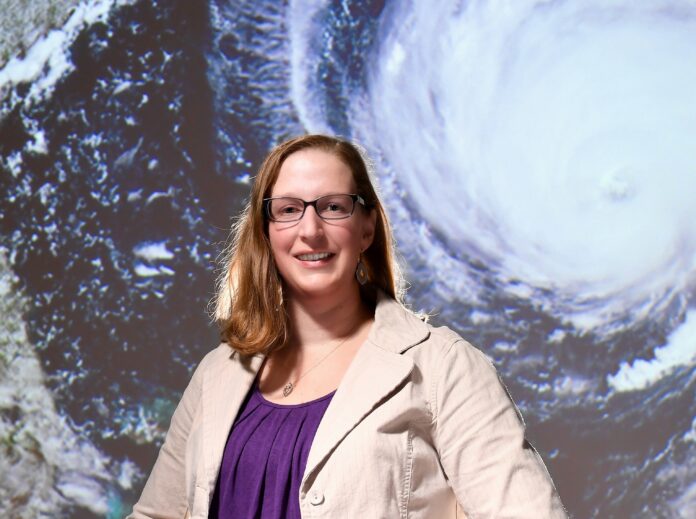
The future of climate change is setting a new image for what the planet will look like in the next coming years. Earth will be bracing for a warmer atmosphere, a warmer, more acidic ocean, higher sea levels, and a change in precipitation patterns.
One of the biggest concerns in America that directly affects towns and cities on the coasts, is the increase in sea level rise. For Rowan University which is located just an hour from the shore, preparation for storms of the future is necessary.
Assistant Professor in the Department of Environmental Science Dr. Andra Garner is conducting research that focuses on this type of preparation. In a recent video posted by Rowan University on YouTube, Garner discusses how she is studying the impact of natural hazards due to climate change. Her work focuses on viewing these changes from large computational data sets of simulated hurricanes that are generated for several types of climates.
With this data, she can detect the patterns of these hurricanes from the past, and see how the increase in hurricanes will affect the future, specifically in her data set up to the year 2100.
“With all this data, I create databases that allow me to then look at how our knowledge has grown on the subject of sea-level rise over the last four decades or so,” said Garner, “…and to see how well our scientific knowledge translates into action for our local communities.”
Her research, which is also based on examining how New York City will be impacted by the severity of storms, allows her to understand what city officials can do to prepare residents. Garner assesses how the hurricanes will change in severity levels, and how the sea level rise will combine with this storm.
The researcher also discussed her goals for her research on climate change’s impact on natural hazards.
“We need to have a better handle on how especially damaging hazards like tropical cyclones or sea level rise may evolve as the planet warms if we want to be able to prepare our coastal communities for the future,” said Garner.
Dr. Ted Howell, a senior lecturer for the Department of Writing Arts and also for the Department of Geography, Planning, and Sustainability, believes that coastal communities, especially low-income, will be severely affected. As climate change continues to warm the planet and more water vapor is evaporated into the atmosphere, it will eventually fuel these storms to have much more power.
“I think we have the clearest example of this with Hurricane Katrina in New Orleans, where folks who were well off and kind of were paying attention to the news and had the ability to get out of New Orleans,” said Howell. “Whereas folks who didn’t have that type of access, did not have the ability to move quickly and New Orleans ended up being hit really hard.”
This raises the question of low-income communities being the center of focus in preparation for when natural hazards do become dangerous. Dr. Lauren Kipp, an assistant professor of environmental science, explains how climate change is a threat to not just hurricanes, but a lot of other natural hazards.
“Climate change is also a ‘threat multiplier-‘ meaning that it is increasing the number of hazards we need to deal with at once. If we are dealing with multiple extreme events it puts more stress on our infrastructure.” said Kipp.
As knowledge on this topic becomes more extensive and experts specializing in environmental science and climate change, say that these storms could cause more damage, affordable and accessible preparations can be considered for low-income communities. If another severe hurricane hits the coast, or any part of the country, the intention of the research is to bring awareness to what communities have the ability to leave, find safety, and protect themselves.
Garner is completing this study to hopefully give climate scientists insight into ways to communicate with officials on how to protect all communities from flooding, hurricanes, and much more.
For comments/questions about this story DM us on Instagram @thewhitatrowan or email thewhit.newseditor@gmail.com





